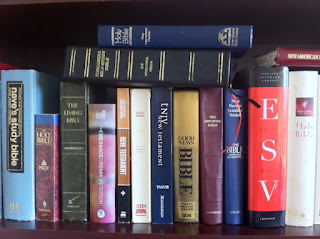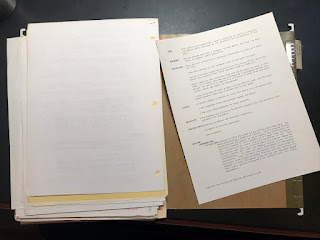It has been a while since I posted here. Reason, chemo. During the 21 days of the round I get about 4 or 5 days that I can be productive. The rest of the time I am in a thick fog or just do not have any energy. However, I have stayed in the Word for the most part. I want to share some thoughts that I mentioned briefly in the video in the May 12th post here on 1 Peter 2:1 – 2 (here @ Bible Gateway).
This is one of the passages to which Prof always referred when he was talking about the importance of being in the Word for ourselves.
1 Peter 2:1–3 (NASB95)
1 Therefore, putting aside all malice and all deceit and hypocrisy and envy and all slander,
2 like newborn babies, long for the pure milk of the word, so that by it you may grow in respect to salvation,
3 if you have tasted the kindness of the Lord.
Note that those three verses are one sentence. When we study a passage in the Bible, we tend to follow the versification. Problem is that the verses many times break up sentences and paragraphs. Some of the chapter divisions break up the continuation of a thought, the division between 2 Timothy 3 and 4 and the division between 2 Peter 1 and 2 are prime examples.
I have begun to bracket sentences in my study, so I do not break up the intent of the author. I would recommend that practice.
Consider this passage. Peter compares what our attitude toward the Word of God should be to the attitude of an infant toward his meal. If you have the slightest bit of experience with babies, you are aware that when they want something, you know, in no uncertain terms. The noise is only mitigated when their demands are met.
But, note at the beginning of verse 3 the clause starts with “if”. “If” is a structural marker. I have highlighted all of the structural markers in the sentence. It is not the purpose here to explain how to use all of them if you search this blog for structure you will find more info. Or if you have questions do not hesitate to ask. The point here is that 1 Peter 2:1 – 3 (here @ Bible Gateway) among other structural elements is a reversed conditional statement. That is the if clause is preceded by the then or in this case “therefore” clause which, in fact is also connected to 1:22 -25 (here @ Bible Gateway). The old fisherman is presenting a fairly complex argument here (and we have found yet another chapter division that breaks up the flow of the argument).
The condition is that we have tasted the kindness of the Lord. This raises a number of questions. In what sense is Peter using “tasted” here? What does he mean by the “kindness of the Lord”? There can be several answers to this. These questions should prompt us to do a Word study on how Peter has used these words or concepts in other places. Then we should investigate how Paul, James, John, Jude, the writer of Hebrews used these concepts, then we should look at the use of these concepts in the Gospels, and finally Revelation. To be thorough we should then see how the concepts were used in the Septuagint and the Classics and how did the early Church Fathers use these words and concepts. Kind of sounds like work does it not? I will do this but I am not going to share all of the detail of the study here.
We will continue to look at this tomorrow.





























